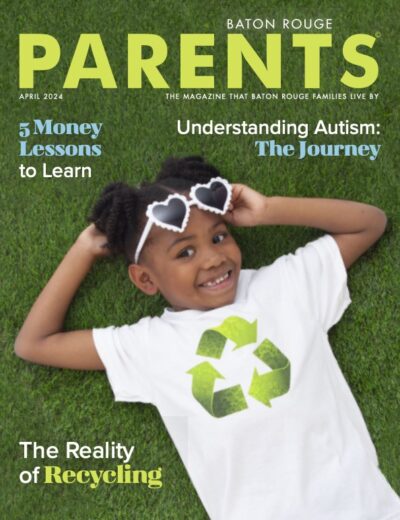
The Complex World of ADHD in Children
Belynda Gauthier’s son was kicked out of five daycare programs before he turned five years old. She heard a lot of misguided opinions about what might be “wrong” with him. A social worker said he was autistic. Deafness was another theory, but testing revealed that he could hear just fine. Many people assumed he was the victim of bad parenting. “People’s first inclination is to blame the mother,” she says. The Gauthiers’ struggle was almost 30 years ago, when ADHD was infrequently diagnosed and less understood.
At age four, Gauthier’s son was diagnosed with attention deficit/hyperactivity disorder, or ADHD. Gauthier says he has “ADHHHHHHD,” putting extra emphasis on how “severely hyper” he was as a young child. At the time, medication and therapies to treat ADHD were less advanced, and he was in middle school before he found a medication that worked for him.
Even after finding medication, he struggled in school. A public high school stuck him in special ed classes, though he had a high I.Q. A Catholic high school accepted him, then decided at the last minute not to enroll him. He ended up at Millerville Academy, a now closed private school, and graduated as valedictorian, she says.
Gauthier, a Baton Rouge human resources professional, was recently elected national board president for Children and Adults with Attention-Deficit/Hyperactivity Disorder [CHADD]. She says services for kids with ADHD are more widely available now than when her son was growing up. “Things are better in some ways,” she says. “They’re not great yet.”
The symptoms and severity of ADHD vary, and what works for one patient may not work for another. There’s no cure, although children may “grow out of it,” says psychologist Randall Lemoine, who specializes in developmental challenges. Lemoine urges parents to be open to intervention. “I always tell parents I respect their decision, whatever it is,” he says. “But please make an informed decision.”
Diagnosis du Jour
Children with ADHD tend to be inattentive, impulsive and hyperactive. While that might describe just about every child you know, those qualities are more pronounced in children with ADHD and are extreme enough to interfere with school and social development.
Years ago, children with ADHD symptoms were often seen as bad kids who just needed more discipline. Pediatricians, social workers, and teachers are getting better at spotting the possible symptoms and referring a child to an expert, although some are better at it than others. But some experts say the pendulum has swung too far in the other direction.
“I think it has been the diagnosis du jour for many years,” says Christiane Creveling-Benefield, a licensed clinical and school psychologist. “Any time a child was struggling, the obvious answer was ADHD, and I think it really led to a period when it was over-diagnosed and over-medicated.”
A 2012 survey by the Centers for Disease Control and Prevention pegged the rate of Louisiana children diagnosed with ADHD at 13.3 percent, the third-highest in the country. Louisiana children diagnosed with ADHD were more likely to get medicine for it than those in other states, so that 10.4 percent of Louisiana children were given ADHD medication in 2012, the highest in the nation, compared to a national average of 6.1 percent, according to the survey.
ADHD is easily confused for other conditions, especially in young children. Hyperactivity, inability to concentrate, emotional outbursts, and “acting out” can also be signs of anxiety, depression, oppositional behavior, learning disorders, or autism spectrum disorder. Such conditions often accompany ADHD, making a proper diagnosis even more complicated. But ADHD may also be underdiagnosed in some situations, warns Kristin Savicki, a psychologist with the Louisiana Department of Health. While the hyperactivity component is very noticeable, inattention may be less obvious. Children who primarily suffer from the latter may go undiagnosed and untreated.
Children under the age of six definitely are being over-medicated, Savicki adds. Most children should try therapy first, but there isn’t enough access to, or awareness of, evidence-based behavioral therapy, she says. And the diagnosis pendulum might be starting to swing back toward the middle. “I think professionals are getting a little bit better because of the high referral rate [of ADHD],” agrees clinical psychologist Daniene Neal. “I’ve seen a more recent trend of people trying to be a little more thorough before giving a diagnosis.”
No quick fix
For most parents, the ADHD journey begins with their pediatrician. While very few pediatricians specialize in developmental behavior, a competent doctor should be able to refer you to someone who can do a full evaluation.
“I always recommend visiting a pediatrician first,” Neal says. “Any psychologist that you go to is going to want to make sure that we’ve ruled out anything medical that could be contributing.” Other psychology professionals agree that getting a pediatrician check up is a good idea. Thompson Davis, associate professor of psychology at LSU and director of the university’s Psychological Services Center, says a parent who merely suspects their child might have ADHD or a similar condition should start with a pediatrician. If you’re fairly certain, you might want to go straight to a child psychologist, he says, but as a child psychologist himself, he admits he may be biased.
Treatment for ADHD falls into three main categories: behavioral therapy, medicine, and classroom and home support. “Medication, by itself, tends to be about as good for most problems as some sort of cognitive behavioral therapy by itself,” Davis says. Using both together usually leads to the best outcomes, he adds.
While parents should research their child’s condition, Davis warns them to be wary about unproven “alternative” treatments they might come across. Those can include everything from dietary changes to bathing children in magnetic clay to draw out “heavy metals.”
Dr. Steven Felix, who practices the rare specialty of developmental behavioral pediatrics, says at least 25 percent of his ADHD patients don’t need medication. All drugs can have side effects, so it makes sense to avoid using them if possible.
And when kids go off their medications, as many do on weekends and during the summer when they’re not in school, the symptoms return. In therapy, children can learn organizational and coping skills they can carry into adulthood. But, medication can be an important tool in combating ADHD when used as directed. In some cases, a child’s issues are severe enough that it makes sense to incorporate medicine right from the beginning of treatment, Felix says.
Public schools, including charter schools, are legally required to accommodate students diagnosed with ADHD. Of the East Baton Rouge Parish School System’s roughly 41,000 students, about 2,800 are diagnosed with ADHD, compared to 2,500 in 2015. Accommodations can include preferential seating, minimizing distractions, and/or use of a timer to increase focus, EBR officials explained. Private schools are not subject to the same regulations, so access to accommodations may vary.
While parents of children with ADHD often get a bad rap for supposedly not providing enough discipline, Davis says, consistent discipline, including rewards and reinforcement for good behavior, is important. While parents don’t cause ADHD, they can help their child battle the condition by providing clear house rules, a consistent routine and a quiet place to study. Lemoine recommends a family-oriented approach to therapy, in which parents take part in weekly sessions with the child. “If you can get the teacher and the parents on the same page supporting the child,” he says, “I think you’re going to see some success.”
Every child is different
Kara Shupe of Families Helping Families of Greater Baton Rouge works with parents who have children with ADHD. While her organization does not recommend specific providers, it can help parents figure out how to find the right treatment and services. She strongly recommends finding a support group. “Other parents out there are dealing with the same things you’re dealing with,” she says. While there’s growing acceptance that ADHD is a real medical condition, she says the “naysayers” are still out there. Parents need that support from one another to brave the trials that will come.
Although parents of children with ADHD will face frustration, their children can, and often do, surprise them and others by overcoming the overwhelming diagnosis. Shupe’s daughter Emma was diagnosed with ADHD as a first grader, and Shupe was reluctant to give ADHD medication to her so young. She faced obstacles with finding the right services and medication for her young daughter, but after trying around 10 different ones, they finally discovered one that worked best.
After the right combination of services and medication, Emma went on to become an honor student. This fall, Emma started her senior year at the Louisiana School for Math, Science and the Arts, the academically rigorous residential public school in Natchitoches. She still takes her meds, and she still gets accommodations from the school. But she’s taking college-level classes, her mom says, and she’s flourishing.
Emma is an example of many children who, once they receive the help they need, learn to manage their ADHD and thrive. ■





